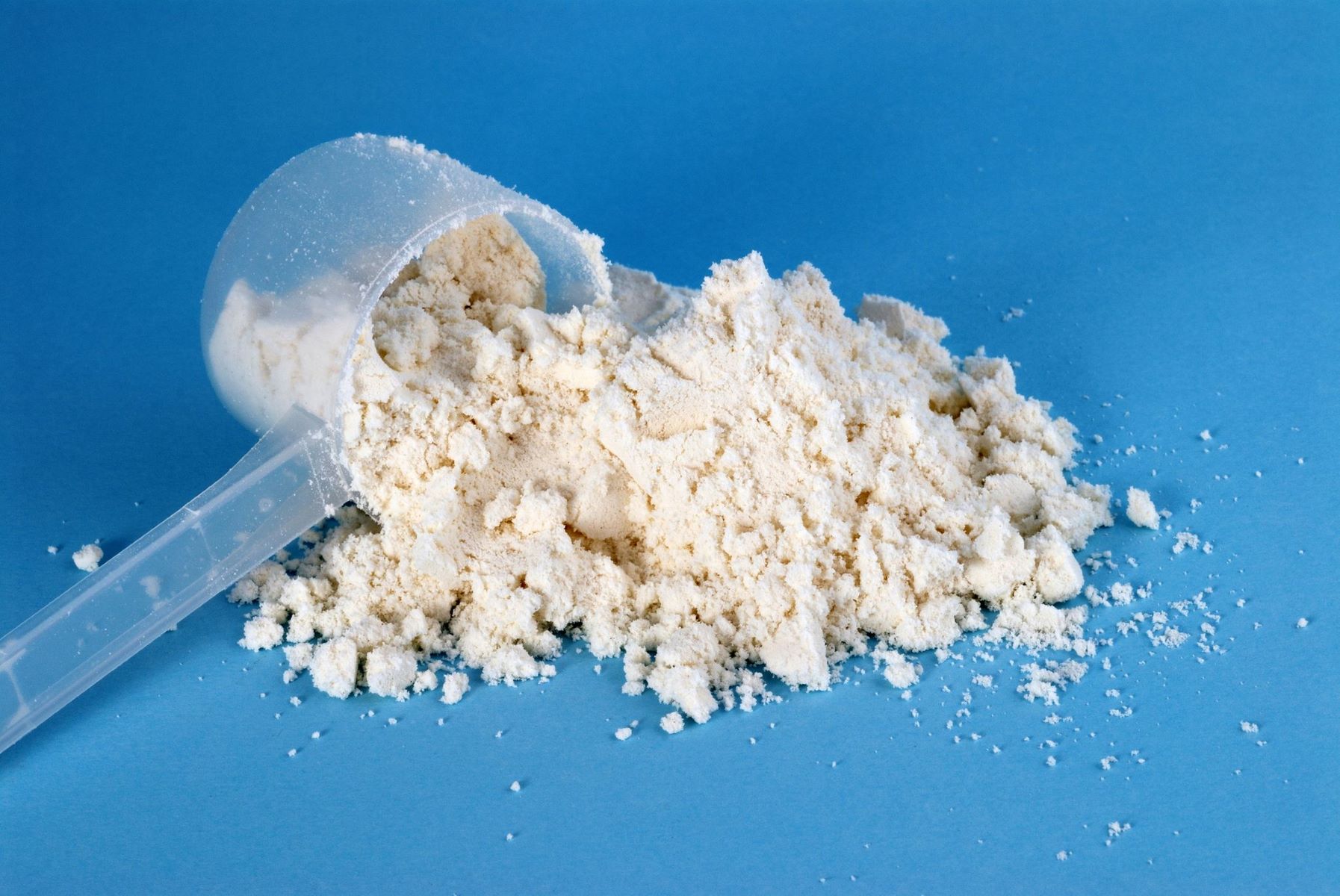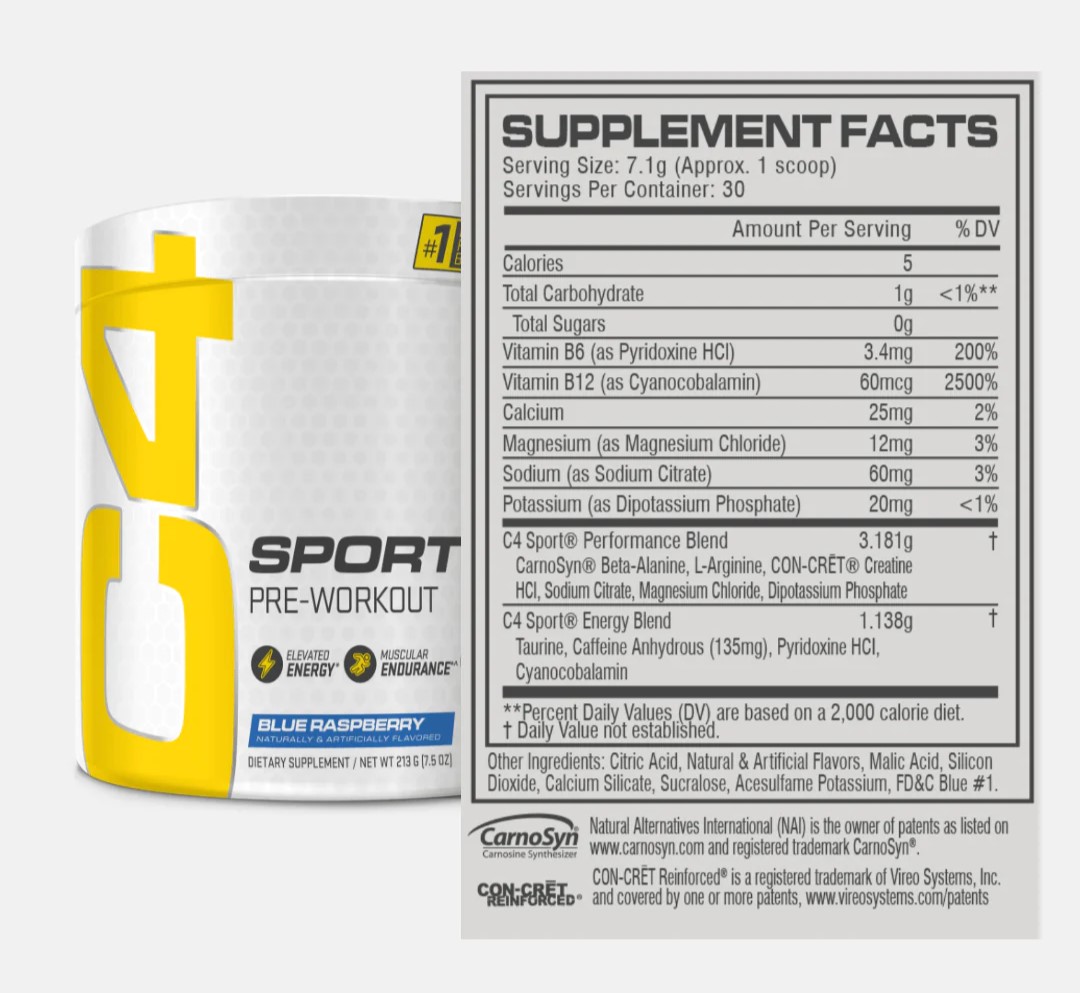Home>Misc>Featured>Which Diet Has Been Shown To Increase An Athletes Endurance?


Featured
Which Diet Has Been Shown To Increase An Athletes Endurance?
Modified: January 2, 2024
Discover the featured diet that has been scientifically proven to enhance an athlete's endurance. Enhance your performance and achieve your fitness goals with this effective dietary approach.
Introduction
Endurance plays a critical role in the performance of athletes, regardless of their sport or discipline. Whether it’s a long-distance runner, a cyclist, or a swimmer, having the ability to maintain a high level of performance over an extended period of time is essential for success. Therefore, athletes are constantly on the lookout for ways to enhance their endurance.
One area that has been extensively studied and proven to have a significant impact on an athlete’s endurance is their diet. The food and nutrients an athlete consumes can have a direct influence on their stamina, energy levels, and overall performance. Therefore, selecting the right diet is crucial for optimizing endurance and maximizing athletic potential.
As a result, various diets have emerged claiming to be ideal for athletes looking to improve their endurance. From carbohydrate-rich diets to high-protein regimens, athletes have a multitude of options to choose from. The question then becomes, which diet has been shown to increase an athlete’s endurance?
In this article, we will explore the different diets that have been studied and their effects on an athlete’s endurance. We will delve into the impact of carbohydrate-rich diets on endurance, the role of protein in enhancing stamina, and the effect of fat-rich diets on an athlete’s performance. By comparing these diets and analyzing their benefits, we hope to provide athletes with valuable insights to help them optimize their endurance and achieve their goals.
The Importance of Endurance for Athletes
Endurance is a crucial factor in athletic performance. It is the ability to sustain prolonged physical activity, resist fatigue, and maintain a high level of performance. Athletes who possess excellent endurance have a competitive advantage, as it allows them to endure intense training sessions, perform at their best during competitions, and recover quickly between training sessions.
Endurance is particularly important in sports that require a high level of aerobic activity, such as long-distance running, cycling, swimming, and triathlons. In these sports, athletes need to maintain a consistent pace or intensity for an extended period of time. Without sufficient endurance, an athlete may struggle to maintain performance, leading to decreased speed, strength, and overall effectiveness in their respective sports.
Furthermore, endurance plays a vital role in enhancing an athlete’s cardiovascular and respiratory systems. Regular aerobic exercise improves lung capacity and efficiency, strengthens the heart muscle, increases blood flow, and enhances oxygen delivery to the muscles. These physiological adaptations allow athletes to perform at a higher capacity and delay the onset of fatigue, ultimately improving their endurance.
Moreover, endurance also impacts an athlete’s mental and psychological fortitude. The ability to push through physical and mental barriers, stay focused, and maintain a positive mindset during lengthy training sessions or competitive events is crucial for success. Building endurance not only strengthens the body but also cultivates mental strength and resilience, leading to improved sports performance overall.
Overall, endurance is essential for athletes looking to excel in their respective sports. It enables them to sustain peak performance, outlast their opponents, and reach their full potential. By prioritizing endurance training and adopting strategies to enhance their stamina, athletes can make significant strides towards achieving their athletic goals and becoming the best version of themselves.
Factors Affecting an Athlete’s Endurance
An athlete’s endurance is influenced by a variety of factors, both internal and external. These factors can impact an athlete’s ability to sustain physical activity, resist fatigue, and maintain optimal performance. Understanding these factors is essential in developing strategies to enhance an athlete’s endurance. Let’s explore some of the key factors:
Training and Conditioning: The level of physical fitness and conditioning is a crucial factor in determining an athlete’s endurance. Regular training, including aerobic exercises, interval training, and endurance-specific workouts, helps improve cardiovascular fitness, muscle strength, and overall stamina. Adequate training volume and intensity are essential for building endurance and preparing the body for endurance-based activities.
Nutrition and Hydration: Proper nutrition and hydration play a vital role in an athlete’s endurance. Consuming a balanced diet that includes sufficient carbohydrates, proteins, and healthy fats provides the necessary fuel for muscles and supports energy production. Adequate hydration is also essential to maintain optimal bodily functions and prevent dehydration, which can severely impact endurance performance.
Rest and Recovery: Sufficient rest and recovery are critical for an athlete’s endurance. Rest allows the body to repair and rebuild muscles, replenish energy stores, and minimize the risk of overtraining and injuries. Incorporating rest days into training schedules and prioritizing quality sleep are necessary for optimizing endurance and preventing fatigue.
Mental Strength and Focus: An athlete’s mental state and mindset can significantly impact their endurance. The ability to stay focused, maintain concentration, and push through mental barriers is essential for sustaining performance during long-duration activities. Mental training techniques, such as visualization, goal setting, and positive self-talk, can help improve an athlete’s mental strength and endurance.
Environmental Factors: External factors such as temperature, humidity, altitude, and air quality can affect an athlete’s endurance. Extreme heat or cold, high altitude, and poor air quality can impact an athlete’s ability to perform at their best. Training and acclimatization to specific environmental conditions can help an athlete adapt and improve their endurance performance.
Genetics: While it is not a factor that can be controlled, genetics plays a role in an athlete’s endurance potential. Some athletes may have genetic advantages in terms of aerobic capacity, muscle fiber composition, or oxygen utilization, which can impact their endurance capabilities. However, it is essential to remember that genetics do not dictate an athlete’s potential, and with proper training and conditioning, individuals can improve their endurance regardless of their genetic predispositions.
By considering and addressing these factors, athletes can develop personalized strategies to enhance their endurance. Whether it’s training modifications, dietary adjustments, or mental techniques, a holistic approach to endurance development can lead to significant improvements in an athlete’s performance.
Overview of Different Diets for Athletes
When it comes to improving endurance, athletes often turn to various diets to optimize their performance and stamina. While there is no one-size-fits-all approach, understanding the different types of diets and their impact on endurance can help athletes make informed choices about their nutrition. Let’s explore some of the most popular diets for athletes:
Carbohydrate-rich Diets: Carbohydrates are a primary source of energy for endurance athletes. Consuming a diet that is high in carbohydrates ensures that glycogen stores in the muscles are adequately replenished, thereby providing the necessary fuel for sustained physical activity. Carbohydrate-rich diets typically include foods such as whole grains, fruits, vegetables, and legumes.
High-Protein Diets: Protein is essential for muscle repair, recovery, and growth. While endurance athletes may not require as much protein as strength athletes, consuming an adequate amount helps maintain muscle mass and supports overall athletic performance. Foods rich in protein such as lean meats, poultry, fish, eggs, dairy, and plant-based sources like beans and tofu are commonly included in high-protein diets.
Fat-rich Diets: Contrary to popular belief, incorporating healthy fats into an athlete’s diet can be beneficial for endurance. Fats are a concentrated source of energy and are particularly important for long-duration activities. Including foods like avocados, nuts, seeds, olive oil, and fatty fish (such as salmon) can provide essential fatty acids and help optimize endurance performance.
Ketogenic Diets: The ketogenic diet is a high-fat, low-carbohydrate eating approach that encourages the body to enter a state of ketosis, where it primarily uses fat for energy instead of carbohydrates. Although this diet has gained popularity in recent years, its effectiveness for enhancing endurance performance is still debatable, as the body’s reliance on carbohydrates for high-intensity exercise may be compromised.
Periodized Diets: Some athletes opt to follow periodized diets that are tailored to meet the specific training phase or competition schedule. These diets involve adjusting macronutrient ratios (carbohydrates, protein, fats) and total calorie intake based on training intensity, duration, and goals. By strategically timing and adjusting nutrient intake, athletes can optimize fuel utilization and enhance their endurance performance during critical training periods.
It’s worth noting that individual nutritional needs may vary, and what works for one athlete may not work for another. Consulting with a sports nutritionist or registered dietitian who specializes in working with athletes can be invaluable in developing a personalized nutrition plan that targets an athlete’s specific endurance goals.
In the next sections, we will delve deeper into the impact of carbohydrate-rich diets, high-protein diets, and fat-rich diets on an athlete’s endurance performance, exploring how each diet can influence stamina, energy levels, and overall athletic performance.
The Impact of Carbohydrate-rich Diets on Endurance
Carbohydrates are a crucial source of energy for athletes, especially those engaged in endurance activities. Carbohydrate-rich diets have been extensively studied and widely recognized for their positive impact on endurance performance. Let’s explore how these diets affect an athlete’s stamina, energy levels, and overall athletic performance:
Improved Glycogen Stores: When an athlete consumes carbohydrates, they are broken down into glucose, which is stored as glycogen in the muscles and liver. During exercise, the body taps into these glycogen stores to fuel physical activity. By following a carbohydrate-rich diet, athletes can maximize their glycogen stores, allowing them to sustain energy levels and perform at a higher intensity for longer periods of time.
Delaying Fatigue: Consuming carbohydrates during exercise can delay the onset of fatigue. The body can quickly and efficiently convert carbohydrates into glucose, which serves as a readily available energy source. By maintaining optimal blood glucose levels, athletes can sustain performance and reduce the risk of premature fatigue during endurance activities.
Promoting Optimal Performance: Carbohydrates are the body’s preferred source of fuel for high-intensity exercise. By consuming a carbohydrate-rich diet, athletes can ensure that they have enough energy to meet the demands of their training and competitions. This can lead to improved performance, as the body can sustain higher workloads and maintain a faster pace for longer durations.
Enhancing Recovery: In addition to providing energy during exercise, carbohydrates play a crucial role in post-workout recovery. Consuming carbohydrates after a workout helps replenish depleted glycogen stores and initiates muscle repair and recovery processes. This is especially important for athletes who engage in multiple training sessions or compete in events over consecutive days.
Timing and Quantity: It’s important to note that the timing and quantity of carbohydrates can impact their effectiveness in enhancing endurance. Consuming a pre-exercise meal or snack rich in carbohydrates helps top up glycogen stores and provides immediate fuel for the upcoming activity. Additionally, consuming carbohydrates during prolonged exercise sessions (such as endurance races) can help maintain energy levels. Lastly, post-exercise carbohydrates aid in glycogen restoration and muscle recovery. An individual’s carbohydrate needs may vary based on factors such as exercise duration, intensity, and body composition.
Incorporating a variety of complex carbohydrates, such as whole grains, fruits, vegetables, and legumes, into an athlete’s diet can provide the necessary nutrients for optimal endurance performance. Working with a sports nutritionist or registered dietitian can help athletes develop a personalized carbohydrate-rich diet plan that caters to their specific energy requirements and goals.
While carbohydrates are a valuable component of an endurance athlete’s diet, it’s important to maintain a balanced approach. Including adequate amounts of protein and healthy fats alongside carbohydrates ensures a well-rounded and nourishing diet that supports overall health and performance.
The Role of Protein in Enhancing Athlete’s Endurance
Protein is an essential macronutrient that plays a critical role in an athlete’s diet, including those focused on endurance activities. While carbohydrates are the primary source of energy, protein also plays a vital role in enhancing an athlete’s endurance performance. Let’s explore the various ways protein contributes to stamina, energy levels, and overall athletic performance:
Muscle Repair and Recovery: Endurance activities can place significant stress on the muscles, leading to micro-tears and damage. Protein is essential for muscle repair and recovery. It provides the building blocks (amino acids) necessary for repairing and rebuilding muscles after intense exercise. Adequate protein intake helps speed up the recovery process, reducing muscle soreness, and improving overall muscular function.
Maintaining Muscle Mass: Endurance training can sometimes result in muscle breakdown, especially if an athlete is not consuming enough calories or carbohydrates. Consuming an adequate amount of protein helps preserve muscle mass, as it provides the necessary amino acids to support protein synthesis and maintain muscle integrity. This is crucial for endurance athletes, as the preservation of lean muscle mass contributes to overall strength, power, and endurance.
Supporting Optimal Immune Function: Endurance training can temporarily suppress the immune system, increasing the risk of illness and infection. Protein plays a key role in supporting immune function by contributing to the production of antibodies and immune cells. By ensuring adequate protein intake, athletes can enhance their immune response, reduce the risk of illness, and maintain consistent training schedules.
Energy Source during Prolonged Exercise: While carbohydrates are the body’s primary source of energy during endurance activities, protein can also serve as a fuel source in certain circumstances. During prolonged exercise, when glycogen stores are depleted, the body may start breaking down muscle protein into amino acids to convert into glucose for energy. Adequate protein intake helps spare muscle breakdown by providing an alternative fuel source and preserving glycogen stores for more prolonged endurance efforts.
Timing and Quantity: The timing and distribution of protein intake throughout the day is crucial for optimizing endurance performance. Consuming protein-rich meals and snacks throughout the day helps ensure a steady supply of amino acids for muscle repair and recovery. Additionally, consuming protein shortly after exercise (within the first 30-60 minutes) is important for initiating the muscle recovery process and maximizing the benefits of exercise-induced muscle adaptation.
It’s important for athletes to include a variety of high-quality protein sources in their diet, such as lean meats, poultry, fish, eggs, dairy, legumes, and plant-based protein powders. The protein needs of athletes may vary based on factors such as training volume, intensity, body weight, and overall goals, so consulting with a sports nutritionist or registered dietitian can help athletes determine optimal protein intake for their specific needs.
While protein is essential for enhancing endurance performance, it’s important to maintain a balanced approach to nutrition. Adequate carbohydrate and fat intake, along with proper hydration and overall calorie consumption, are also crucial for supporting energy production, optimal metabolism, and overall health for enduring athletes.
The Effect of Fat-rich Diets on Athlete’s Endurance
Fat is often associated with weight gain and decreased athletic performance, leading some athletes to be cautious about including it in their diet. However, fat is an essential macronutrient that can have a positive impact on an athlete’s endurance performance. Let’s explore the effects of fat-rich diets on stamina, energy levels, and overall athletic performance:
Long-lasting Energy Source: Fat is a concentrated source of energy, providing more than twice the amount of energy per gram compared to carbohydrates and protein. Endurance activities rely on the utilization of fat stores for fuel during low- to moderate-intensity exercise. By incorporating healthy sources of fat into their diet, such as avocados, nuts, seeds, and olive oil, athletes can tap into their fat reserves for sustained energy during long-duration activities.
Improved Satiety: Fat takes longer to digest compared to carbohydrates and protein. Including fat in meals and snacks can help athletes feel fuller for longer periods, reducing the likelihood of hunger during workouts or competitions. This can be particularly beneficial for endurance athletes who may need to go for extended periods without access to food.
Support for Hormonal Balance: Some hormones, such as testosterone and estrogen, are synthesized from cholesterol, a type of fat. Maintaining an adequate intake of healthy fats is important for hormone production, which can impact overall health, well-being, and athletic performance. Ensuring healthy hormone levels can support an athlete’s performance and recovery.
Vitamin Absorption: Certain vitamins, known as fat-soluble vitamins (A, D, E, and K), require fat for proper absorption. These vitamins are essential for various physiological processes in the body, including bone health, immune function, and antioxidant protection. Including healthy fats in the diet promotes the absorption and utilization of these crucial vitamins, supporting an athlete’s overall health and well-being.
Omega-3 Fatty Acids and Inflammation: Omega-3 fatty acids, found in fatty fish like salmon and in walnuts, chia seeds, and flaxseeds, have anti-inflammatory properties. Endurance activities can cause inflammation in the body, and incorporating omega-3 fats into an athlete’s diet can help reduce this inflammation, supporting faster recovery and improving overall endurance performance.
Timing and Quantity: It’s important to note that the timing and quantity of fat intake can affect its impact on endurance performance. Consuming a high-fat meal immediately before or during exercise can slow down digestion and potentially cause discomfort. However, including moderate amounts of healthy fats throughout the day, especially during meals and snacks that are not immediately before or during exercise, can provide sustained energy and support endurance activities without hindering digestion.
While fat-rich diets can provide numerous benefits for endurance athletes, it’s essential to focus on consuming healthy fats in moderation. Opt for sources of monounsaturated and polyunsaturated fats, such as avocados, olive oil, nuts, and seeds, while limiting saturated and trans fats found in processed foods and fried items.
As with any dietary change, individual needs may vary based on factors such as training volume, intensity, body composition, and personal preference. Consulting with a sports nutritionist or registered dietitian can help athletes develop a personalized diet plan that incorporates the right balance of carbohydrates, protein, and fats to optimize their endurance performance and overall health.
Comparing Different Diets: Which One is Best for Endurance?
When it comes to determining the best diet for enhancing endurance, there is no one-size-fits-all answer. Each athlete is unique, with individual nutritional needs, training demands, and personal preferences. Different diets can have varying effects on an athlete’s endurance performance. Let’s compare some of the popular diets and consider their potential benefits and considerations:
Carbohydrate-rich Diets: Carbohydrate-rich diets have long been recommended for endurance athletes, given their essential role in refueling glycogen stores and providing readily available energy. These diets are valuable for activities that require high-intensity effort and long durations. However, it’s important to consider the quality of carbohydrates, focusing on whole grains, fruits, and vegetables, while limiting refined sugars.
High-Protein Diets: Protein is essential for muscle repair, recovery, and maintenance, making high-protein diets beneficial for athletes. While endurance athletes may not require as much protein as strength athletes, consuming adequate amounts helps support muscle integrity and overall performance. It’s important to choose lean sources of protein and maintain a balanced ratio of other macronutrients.
Fat-rich Diets: Fat-rich diets can provide sustained energy for endurance activities, making them suitable for low- to moderate-intensity exercise. Incorporating healthy fats, such as avocados, nuts, seeds, and olive oil, can promote satiety and support hormone production. However, fat-rich diets may not be as effective for activities that require quick bursts of energy or high-intensity efforts.
Ketogenic Diets: Ketogenic diets, which are high in fat and extremely low in carbohydrates, have gained popularity among athletes. However, their effectiveness for endurance performance remains uncertain. While some individuals report improved endurance once they are adapted to using fat as their primary fuel source, others may experience reduced performance due to limited glycogen availability and decreased ability to perform high-intensity efforts.
Periodized Diets: Periodized diets involve adjusting macronutrient ratios and calorie intake based on training phases or competition schedules. These diets take into account an athlete’s specific goals, training demands, and energy requirements during different periods. Adjusting nutrition plans during different training phases can optimize fuel utilization, improve recovery, and support overall endurance performance.
It’s important to note that individual needs and preferences may vary. What works for one athlete may not work for another. Personal factors, such as body composition, training volume, intensity, and specific endurance goals, should be considered when selecting the most suitable diet. Consulting with a sports nutritionist or registered dietitian is highly recommended to develop an individualized nutrition plan based on an athlete’s unique needs and preferences.
Additionally, it’s crucial to prioritize overall dietary balance and variety, ensuring that athletes meet their overall energy requirements and consume a range of nutrient-dense foods. This can help support optimal performance, promote recovery, reduce the risk of deficiencies, and maintain overall health and well-being.
Ultimately, the best diet for endurance is one that is tailored to an athlete’s specific needs, fuels their performance, and supports their long-term health and well-being.
Case Studies: Athletes’ Endurance and Diet
Examining real-life case studies can provide valuable insights into how different diets impact athletes’ endurance performance. Let’s explore a few examples that highlight the relationship between diet and athletic performance:
Case Study 1: Marathon Runner
A professional marathon runner was struggling with fatigue and a decline in performance during long-distance races. After consulting with a sports nutritionist, it was discovered that the athlete’s carbohydrate intake was inadequate for their training volume. The nutritionist recommended a diet rich in complex carbohydrates, emphasizing whole grains, fruits, and vegetables. By increasing carbohydrate intake and timing it strategically around training sessions, the athlete noticed a significant improvement in energy levels, endurance, and race times.
Case Study 2: Triathlete
A competitive triathlete was following a strict ketogenic diet, assuming that it would enhance their endurance performance. However, as the training intensity increased, the athlete found it challenging to maintain high levels of energy during workouts and experienced a significant drop in performance. After reevaluating their diet plan with a sports dietitian, it was agreed to modify the approach. The athlete incorporated more carbohydrates into their diet, especially around intense training sessions, while still maintaining healthy fats. This adjustment led to improved energy levels, better performance, and enhanced recovery for the triathlete.
Case Study 3: Ultra-Endurance Cyclist
An ultra-endurance cyclist was struggling with gastrointestinal issues and fatigue during long training rides. Upon evaluation, it was discovered that the athlete was consuming large amounts of protein and insufficient carbohydrates before and during exercise, leading to digestive discomfort and limited glycogen availability. With guidance from a sports nutritionist, the cyclist adjusted their diet to include a higher carbohydrate intake before, during, and after rides. This change enabled the athlete to maintain energy levels, reduce gastrointestinal distress, and complete longer rides with improved performance and recovery.
These case studies highlight the importance of taking an individualized approach to nutrition for endurance athletes. Every athlete is unique, and their dietary needs may vary based on factors such as training volume, intensity, sport-specific demands, and personal preferences. Consulting with a sports nutritionist or registered dietitian is crucial in developing an appropriate diet plan that supports an athlete’s specific endurance goals.
It’s important to consider the specific dietary requirements of endurance activities and ensure that athletes consume adequate amounts of carbohydrates, proteins, and healthy fats to support energy production, muscle repair, and overall performance. Flexibility and adjustments may be necessary as an athlete’s goals, training routines, and physiological responses evolve over time.
By addressing individual needs and evaluating the impact of different dietary approaches on performance, athletes can make informed decisions to optimize their endurance potential and achieve their athletic goals.
Conclusion
Enhancing endurance is a priority for athletes across various sports, and diet plays a crucial role in achieving optimal performance. From carbohydrate-rich diets that replenish glycogen stores to high-protein diets that support muscle repair and fat-rich diets that provide sustained energy, athletes have a range of dietary options to explore. The choice of diet depends on several factors, including individual needs, preferences, and specific training demands.
Carbohydrate-rich diets have been proven effective in optimizing endurance, as they provide the necessary fuel to sustain high-intensity activities and delay fatigue. Adequate protein intake plays a critical role in enhancing endurance by supporting muscle repair, preservation, and overall performance. Additionally, incorporating healthy fats in moderation can provide sustained energy during activities that require low- to moderate-intensity effort.
While different diets have their advantages, it’s crucial to consider individual variations and needs. Athletes should work with sports nutritionists or registered dietitians to develop personalized nutrition plans based on their specific goals, training routines, and physiological responses. Periodized diets may be beneficial, adjusting nutrient intake according to training phases or competition schedules.
Case studies highlight the importance of an individualized approach to nutrition. Understanding personal needs and making adjustments where necessary can lead to significant improvements in endurance performance. Athletes must prioritize a balanced approach, considering the right proportions of carbohydrates, proteins, and fats, along with sufficient hydration and overall calorie intake.
In conclusion, finding the best diet for enhancing endurance is not a one-size-fits-all solution. Individualized approaches, considering factors such as sport-specific demands, training volumes, and personal preferences, are necessary. With proper nutritional guidance, athletes can optimize their endurance potential, support their overall well-being, and achieve peak performance.









